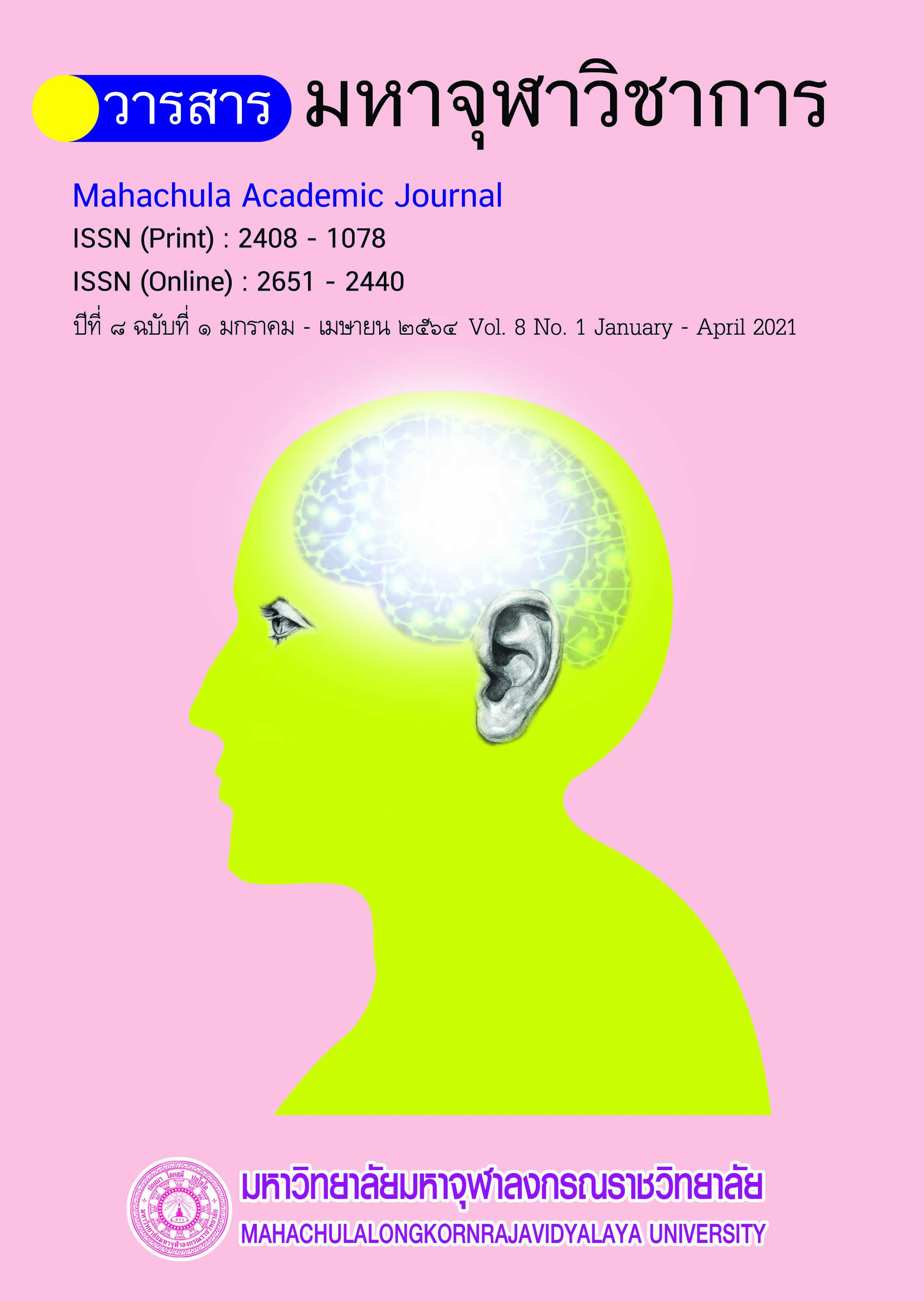Retirement Planning Model for Thai National Athletes
Main Article Content
Abstract
This research aims wear (1) to study the factors, cause and effect which influence the well-being of Thai national team athletes and (2) to develop the retirement planning model of Thai national team athletes. This research is Mixed Method by Explanatory Research. Questionnaires were used as a tool for collecting data from 260 Thai national team athletes. Data analysis used statistical analysis with Structural Equation Model: SEM to test rational relationships. Develop model by Exploratory Factor Analysis: SFA and confirm the retirement plan model of the Thai national team athletes by qualitative research with In-Depth Semi-Structural Interview.
The results showed that develop the retirement planning model of Thai national athletes consist wear Social Support, Psychological Well-Being Scale and Financial Literacy. By discovering that Social Support, Psychological Well-Being and Financial Literacy have a direct positive influence on retirement planning. And retirement planning has a direct positive influence on the intention of retirement of Thai national athletes and also found that Social Support by family support, close people and friends is of direct importance to retirement planning. Athletes with self-improvement, the mind is ready. Have being a family leader, pride in yourself will have a good attitude. Have a good mental health, proper financial behavior controlled, resulting in confidence to proceed with retirement planning in the form of savings or financial investments. And business investments that are sufficient to the further career after being an athlete appropriately to succeed and be happy.
Article Details
References
พระธรรมปิฎก (ป.อ. ปยุตโต). การศึกษาเพื่ออารยะธรรมที่ยั่งยืน. กรุงเทพมหานคร: บริษัท สหธรรมิกจำกัด, ๒๕๓๗.
พระพรหมคุณาภรณ์ (ป. อ. ปยุตฺโต). พจนานุกรรมพุทธศาสตร์ ฉบับประมวลธรรม. พิมพ์ครั้งที่ ๑๘. นนทบุรี: โรงพิมพ์เพิ่มทรัพย์การพิมพ์, ๒๕๕๓.
Erdogan, B., & Enders, J. "Support from the top: supervisor’s perceived organizational support as a moderator of leader-member exchange to satisfaction and performance relationships". Journal of Applied Psychology. (2007). 92 (2), 321-330.
Erpic, S.C., Wylleman, P. & Zupancic, M. "The effect of athletic and non-athletic factors on the sports career termination process". Psychology of Sport and Exercise. (January 2004). 5(1), 45-59.
Gao, J. & McLellan, R. "Using Ryff’s scales of psychological well-being in adolescents in mainland China". Gao and McLellan BMC Psychology. (December 2018). 6(1), 1-8.
Gordon, S. & Lavallee, D. Career transitions. In T. Morris & P. Terry (Eds.), The new sport and exercise psychology companion Morgantown. WV: Fitness Information Technology. (2012), 567-582.
Kleiman, E. M. & Riskind, J. H. "Utilized social support and self-esteem mediate the relationship between perceived social support and suicide ideation: A test of a multiple mediator model". The Journal of Crisis Intervention and Suicide. (2013). 34(1), 42–49.
Leung, C. S., & Earl J. K. "Retirement resources inventory: Construction, factor structure and psychometric properties". Journal of Vocational Behavior. (October 2012). 81(2), 171–182.
Pachana, N.A. Encyclopedia of Geropsychology. SpringerLink. (eBook). Springer ScienceBusiness Media Singapore. 2017.
Ryff, C.D. "Happiness is everything, or is it? Explorations on the meaning of psychological well-being". Journal of Personality and Social Psychology. (1989). 57(6), 1069-1081.
Salami, S.O. "Retirement context and psychological factors as predictors of well-being among retired teachers". Europe’s Journal of Psychology. (May 2010). 6(2), 47-64.
Van Solinge, H. & Henkens, K. "Involuntary retirement: the role of restrictive circumstances, timing, and social embeddedness". Journals of Gerontology Series B Psychological Sciences and Social Sciences. (October 2007). 62(5), 295-303.
Yeung, D. Y. "Is pre-retirement planning always good? An exploratory study of retirement adjustment among Hong Kong Chinese retirees". Aging Ment Health. (2013). 17(3), 386–393.
Yeung, D.Y. & Zhou, X. "Planning for retirement: Longitudinal effect on retirement resources and post-retirement well-being". The National Center for Biotechnology Information. (July 27, 2017), 18(1300).
ผู้จัดการออนไลน์. การวางแผนการเงินส่วนบุคคล: เมื่อประชาชนมั่งคั่ง ประเทศชาติก็มั่นคง ๒๕๕๓. [ออนไลน์]. แหล่งที่มา: https://www.set.or.th/set/financialplanning/knowledgedetail.do?contentId=535&type=article [๒๐ เมษายน ๒๕๖๓].
สมาคมนักวางแผนการเงินไทย. รายงานประจำปีสมาคมนักวางแผนการเงินไทย การประชุมใหญ่วิสามัญประจำปี 2560. [ออนไลน์]. http://www.tfpa.or.th. [๑๘ พฤษภาคม ๒๕๖๓].


